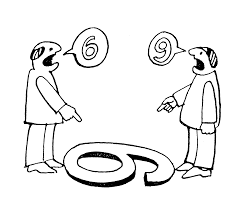Matching or mismatching
If you’re looking to be persuasive with someone, you want to see things through their eyes and communicate in a way they can relate to.
- Matchers look for sameness in the world, trying to understand how things relate to each other.
- Mismatchers see how things are different.
144
215 reads
CURATED FROM
IDEAS CURATED BY
The idea is part of this collection:
Learn more about personaldevelopment with this collection
The importance of perseverance
How to embrace failure as a learning opportunity
The power of innovation and creativity
Related collections
Similar ideas to Matching or mismatching
Try To See Things From Their Perspective
Look the other person in the eyes, and be genuinely curious about what they have to say and why they are saying it. Make a point to really want to understand the other person better, and try to see things from their perspective.
Craving respect
Diplomats know the intensity with which humans crave respect. Diplomats take the time to show that they have bothered to see how things look through the other person's eyes.
Diplomats perceive that people want to feel heard as much as they want to win their case. Therefore...
Bridging differences is not about persuasion
Bridging differences is not to convert people to your ideological position.
Bridging is trying to understand someone else's perspective. It requires asking them questions and seeing the world through their eyes.
Read & Learn
20x Faster
without
deepstash
with
deepstash
with
deepstash
Personalized microlearning
—
100+ Learning Journeys
—
Access to 200,000+ ideas
—
Access to the mobile app
—
Unlimited idea saving
—
—
Unlimited history
—
—
Unlimited listening to ideas
—
—
Downloading & offline access
—
—
Supercharge your mind with one idea per day
Enter your email and spend 1 minute every day to learn something new.
I agree to receive email updates
